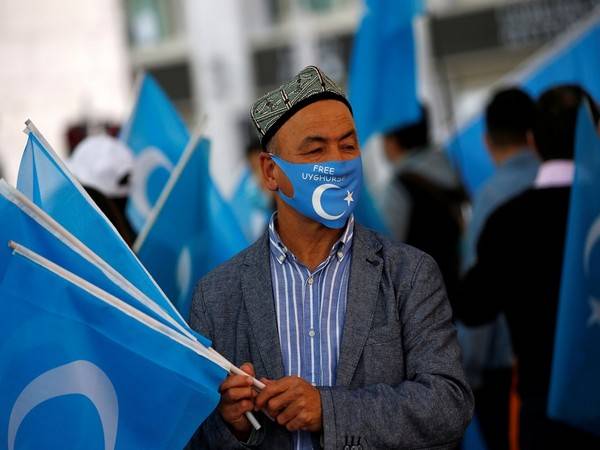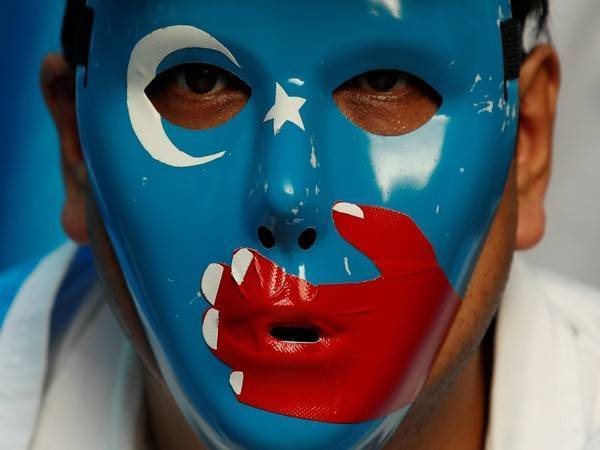Despite China trying to hide, suppress or play down what happening in Xinjiang, the political pressure, activism and struggle of Uyghurs will keep the issue alive…reports Asian Lite News
After China’s participation in Queen Elizabeth II funeral was opposed over the suppression of Xinjiang’s Muslim Uyghurs, the spotlight on Beijing’s brutal suppression attracted global attention.
A group of UK lawmakers objected to the invitation to Chinese government leaders to attend the state funeral of the late Queen Elizabeth II, reported Tibet Press.
A week ago, United Nations Human Rights Office (UNHCR) released a report on the Xinjiang region, reporting widespread repression of minority Turkic Muslims by the Beijing government. The report concluded that “serious human rights violations have been committed” in Xinjiang.
Despite China trying to hide, suppress or play down what happening in Xinjiang, the political pressure, activism and struggle of Uyghurs will keep the issue alive, reported Tibet Press.
Protests in support of Uyghur Muslims are held by human rights activists across the world regularly. Even Uyghurs living outside China are trying to keep the flame alive. All of this suggests that the Xinjiang issue will continue to feature in global discussions.
In the letter to the country’s Foreign Secretary, the UK lawmakers raised concerns over the invitation to the “architects” of genocide against the Uyghur minority. They said the decision was “extraordinary” since the UK Parliament had voted to recognise the “genocide committed by the Chinese government.”
The UK has already banned Chinese officials from visiting the Queen’s body lying in state at Westminster Hall in London. Now calls are made for withdrawing the invitation to the Beijing government, reported Tibet Press.

“Inviting the Chinese government is an insult to the memory of the Queen and should be rescinded immediately, “Tim Loughton, an MP from the ruling Conservative Party.
The growing opposition to China’s participation in the funeral comes as a humiliation for China. The Xi Jinping-led communist government in China has been facing criticism for state-sponsored arbitrary and discriminatory detentions, enforced disappearances, forced labour, forced sterilisation of women, sexual violence, intimidation and mass surveillance, reported Tibet Press.
Global activists and leaders of many western countries have expressed their concerns over the repressive governance in Xinjiang.
Protests are regularly held in the UK, US, Germany and other countries, seeking action against Beijing. Even calls were made to boycott Beijing Olympics and Chinese goods.
The US, UK, Canada, Japan, and Australia had diplomatically boycotted the Beijing Olympics. The US has banned Chinese cotton that is suspected to be produced using forced labour in Xinjiang.
Now the European Union (EU) has proposed a ban on all Chinese goods made using forced labour, expressing concerns about the human rights situation in Xinjiang.
Henrike Hahn, the German representative to the European Parliament, said “We are not like-minded friends of the totalitarian regime in China. We demand a ban on imports of products from Chinese forced labour and on products from Chinese companies in general produced with forced labour.”
The UNHCR report on Xinjiang was released despite the resistance from its chief Michelle Bachelet, who did not want to alienate China, reported Tibet Press.
Confirming the reports of government excesses in Xinjiang, the report sought “adequate remedy and reparation to victims” of human rights Violations. I appealed to the international community to support efforts “to strengthen the protection and promotion of human rights in Xinjiang.
Despite China denying the charges of human right violations, which often comes in the form of threats, there have been sustained efforts by the Uyghur and Kazakh communities to express their plight to the world. (ANI)

Leave a Reply